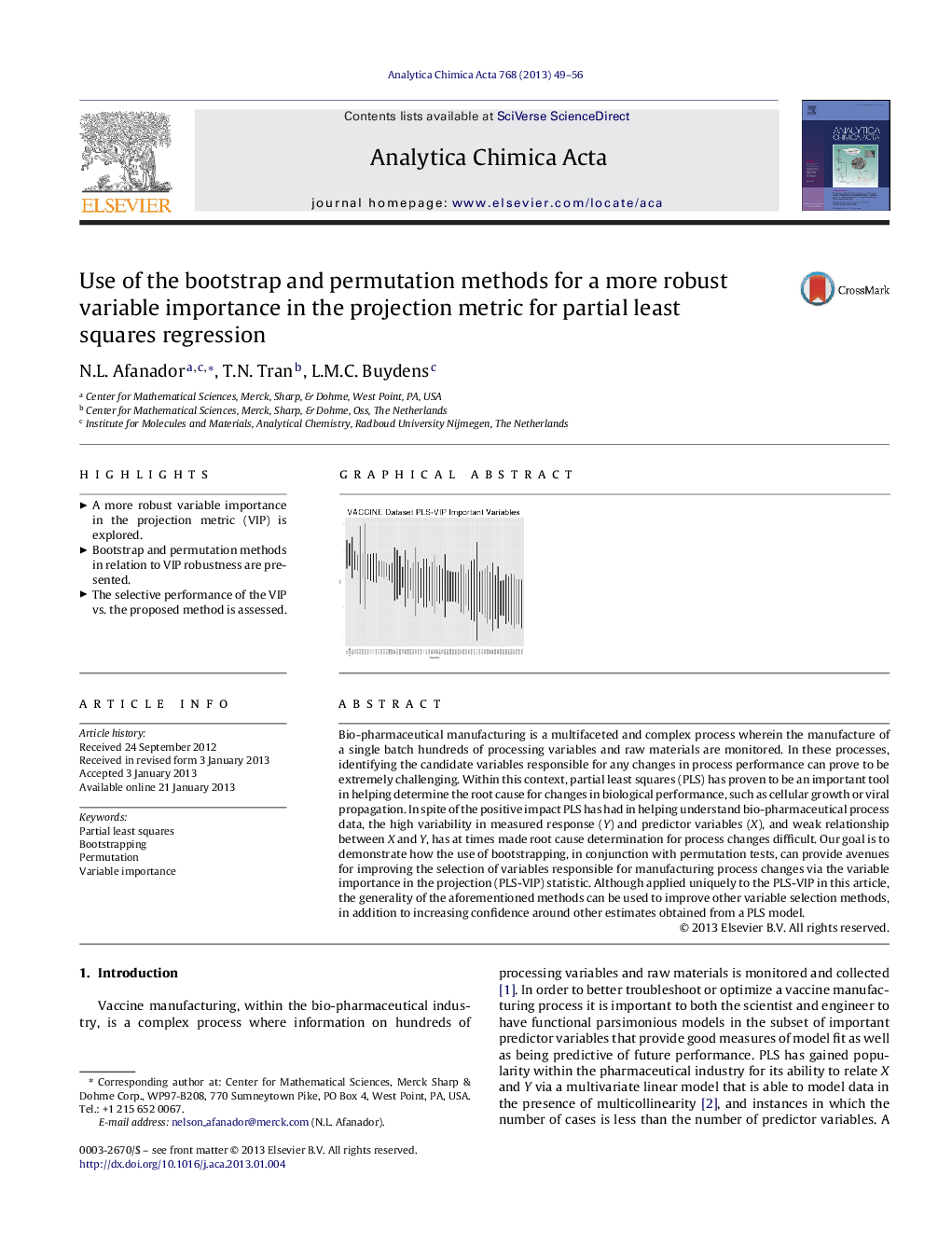| Article ID | Journal | Published Year | Pages | File Type |
|---|---|---|---|---|
| 1165201 | Analytica Chimica Acta | 2013 | 8 Pages |
Bio-pharmaceutical manufacturing is a multifaceted and complex process wherein the manufacture of a single batch hundreds of processing variables and raw materials are monitored. In these processes, identifying the candidate variables responsible for any changes in process performance can prove to be extremely challenging. Within this context, partial least squares (PLS) has proven to be an important tool in helping determine the root cause for changes in biological performance, such as cellular growth or viral propagation. In spite of the positive impact PLS has had in helping understand bio-pharmaceutical process data, the high variability in measured response (Y) and predictor variables (X), and weak relationship between X and Y, has at times made root cause determination for process changes difficult. Our goal is to demonstrate how the use of bootstrapping, in conjunction with permutation tests, can provide avenues for improving the selection of variables responsible for manufacturing process changes via the variable importance in the projection (PLS-VIP) statistic. Although applied uniquely to the PLS-VIP in this article, the generality of the aforementioned methods can be used to improve other variable selection methods, in addition to increasing confidence around other estimates obtained from a PLS model.
Graphical abstractFigure optionsDownload full-size imageDownload as PowerPoint slideHighlights► A more robust variable importance in the projection metric (VIP) is explored. ► Bootstrap and permutation methods in relation to VIP robustness are presented. ► The selective performance of the VIP vs. the proposed method is assessed.
